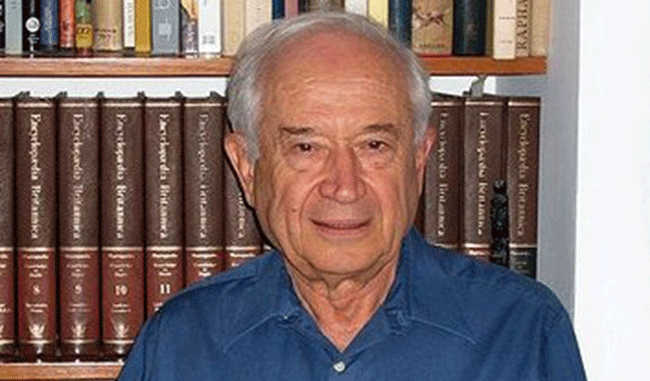Israeli researcher Raphael Mechoulam has announced the development of a process to modify and stabilize cannabidiolic acids (CBDA) that appear early in the cannabis plant’s growth, rendering compounds that have the potential for large-scale use, and opening the door for research trials.
The result is a semi-synthetic, fully stable, acid-based compound that could be useful in suppressing nausea from chemotherapy, and be a treatment for such afflictions as inflammatory bowel disease (IBD) and psoriasis. Researchers say such compounds, which are more potent than CBD or THC – and which so far have shown no negative side effects – could replace steroids and opioids.
Politically correct for pharma
Mechoulam worked with American biotech startup EPM to develop the solution to stabilizing the acids through esterification, a simple chemical process. That could prove interesting to the pharmaceutical industry as the process turns out the acids in a consistent form that is patentable. Also, EPM CEO Reshef Swisa said the U.S. Food and Drug Administration has told the company the compound would not be treated as cannabis but as any other drug in development, thereby avoiding the stigma and legal limitations associated with marijuana.
Compounds from cannabidiolic acids, once modified and stabilized, are much more potent than cannabinoids, according to Mechoulam. Without stabilization, research has shown the acids, which reveal themselves early in plant development but dry up as the plant matures, to be useless. THC and CBD are actually secondary substances that appear later in the growth cycle of the plant, Mechoulam noted.
Substitute for CBD?
EPM’s patent on the use of cannabidiolic acid is the first to prove that CBD can be substituted without major changes in efficiency.
“We compare our compound not only to cannabinoids, but to the existing drugs that are applied today,” Mechoulam said. “So, for example, in IBD we compared our compounds to two conventional products: one is the prednisone (steroids) and one is a biological drug. And in both of them, we managed to prove that the activity of our compound is very similar to the common one.”
“You can look at this compound as inspired by cannabis, but it is a semi-synthetic compound,” Swisa said.
Research in Japan has identified fiber cannabis (hemp) as a significant source of cannabidiolic acid.

